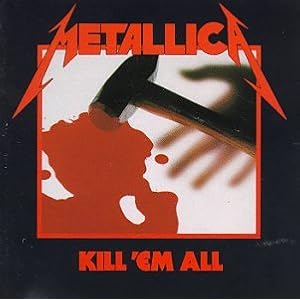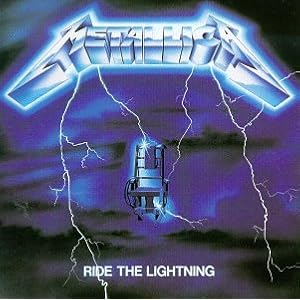Was dragged kicking and screaming to a performance of Chess in the local theatre. A tiny piece of this when I got home made me feel at ease again :-) An unjustly ignored classic...the first minimalistic version, I mean.

Not the original cover. Apparently this is the re-recorded version with guitars....
A review:
This is a wonderful monstrosity of an album. Edgar Allen Poe's story is given exactly the right treatment within this musical genre - akin to a darker and electronic Sondheim or Lloyd-Webber - and it is a crime that this is now a rare recording, when it should be being celebrated worldwide by all those with a love of the theatrically dramatic and the musically gothic.
Reviewers were initially unfair to this album - no doubt comparing it to more immediate and fashionable pop and rock in their pile - and this combination of dissappointing reviews (though few actually bothered at all)and low marketing exposure (if any) meant that few - other than already established Hammill fans - would be aware of this. However, it it still not too late for this record to get the recognition it truly deserves.
The album tells the story of Poe's Usher family in a very direct way, with Chris Judge-Smith (the writer of the libretto) even lifting exact passages from Poe at times, giving an astonishing lyrical intensity throughout. It begins fairly sedately - prettily even - but soon an overwhelming sense of dread emerges as we are introduced to the madness of the Brother Roderick and the desperately bleak situation he shares with his sister Madeline. However, despite the gathering gloom that (rightly) pervades this story, Hammill injects fantastic multi-layered melodies - that resemble rock songs more than classical opera most of the time, despite the lack of guitars here - and after several plays, these become fascinating and addictive and stand up individually even without the context of the whole album. On first hearing, I thought the album to be too long, but with repeated listens, I realised nothing could be ommitted.
All the players here are on top form - and the juxtapositions of voices such as Andy bell (of Erasure) and Lene Lovich really work - but the real master here is undoubtedly Hammill himself, who has given himself a platform to really go over the top with his vocal range, pushing it to the limit, and immersing himself in the insanity of the character that is Roderick Usher. In particular, there is one acappella track (the voices of the house) that is almost beyond belief in its power and ambition. There is little room for subtlety here, but it isn't needed amidst this delerious and ecstatic performance, that actually benefits from its wilful abandonment - and without any crude rock schtick that plagues some 'rock' opera - and is, in its own way, remarkably sincere.
So, all in all a major achievement in my opinion and a great tribute to it's source material. If you genuinely like the dark and the gothic, and are open-minded enough to listen to songs that tell stories and are bereft of straightforward rock structures - then this is for you. If you like the idea of a story about friendship and love that is also about inbreeding and incest, insanity, decay, destruction,comas, burial alive and death - shot through with cobwebs and candles, organ music and the breathing of bats in the walls - then you will love this.
Every Poe cliche is there, as you would expect, but Hammill renders them all afresh with his vivid musical imagination, casting a mischievous and blinding light on the gloom. Backgound music it is not - and no, not one guitar solo. Genius nevertheless - and for the moment, absurdly under-rated.







